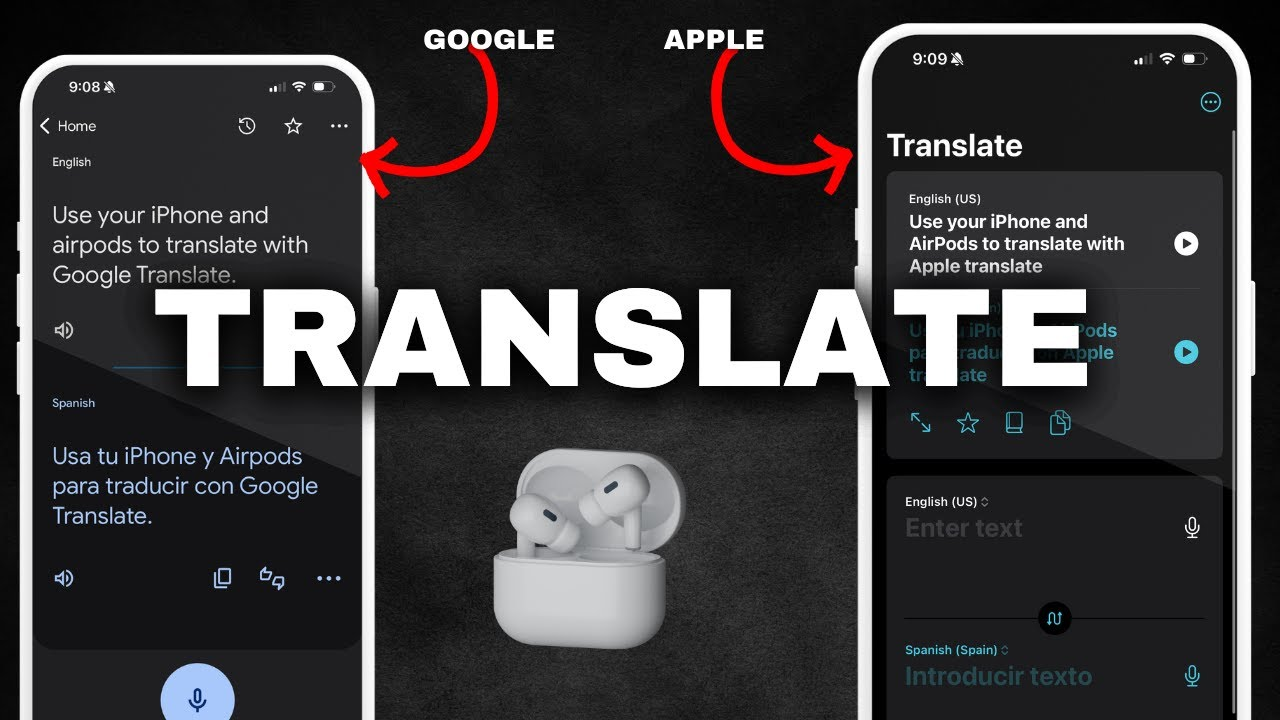The recent Apple antitrust ruling marks a significant turning point in the ongoing Epic Games lawsuit, exposing the tech giant’s persistent anticompetitive behavior. Judge Yvonne Gonzalez Rogers determined that Apple willfully violated her court orders, offloading responsibility for its illegal practices onto the backs of developers and consumers. This ruling not only addresses Apple’s deceptive tactics regarding mobile app fees but also opens the door for an investigation into potential antitrust violations involving the company’s leadership. With a spotlight on Apple’s legal issues, this landmark decision sends a clear message: the court will no longer tolerate actions aimed at stifling competition. As the tech industry watches closely, the implications of this Apple court ruling could redefine the landscape for app developers everywhere.
In light of the Apple antitrust ruling, the focus shifts to how this substantial court outcome affects broader industry practices and consumer rights. The verdict from Judge Yvonne Gonzalez Rogers highlights severe repercussions for Apple as it faces consequences for its previously unchecked control over app store regulations and pricing models. Amid ongoing scrutiny, the tech company is now under increasing pressure to modify its approach to in-app purchase policies and overall marketplace fairness. This ruling not only underscores the ramifications of the Epic Games lawsuit but also sets a precedent for addressing monopolistic practices in the digital economy. As debates over mobile applications and fair access continue, Apple’s legal dilemmas may foster a more equitable environment for developers and users alike.
Understanding the Apple Antitrust Ruling
The recent ruling by Judge Yvonne Gonzalez Rogers regarding Apple’s antitrust violations has significant implications for the tech giant as well as the entire app marketplace. In her detailed 80-page ruling, the judge confirmed that Apple willfully disregarded court orders designed to curb its monopolistic practices. This stark revelation sheds light on Apple’s ongoing anticompetitive behavior, especially in relation to app store fees, which have been a contentious issue amid the Epic Games lawsuit. With the litigation highlighting the entrenched nature of Apple’s practices, stakeholders are left to wonder about the future landscape of mobile applications where developers are pressured into stringent financial obligations.
Moreover, the judge’s findings reinforce growing concerns over Apple’s business model, as her decision marks a turning point in legal accountability for major tech firms. The legal complexities arising from the Epic v. Apple case not only force Apple to reevaluate its policies but also galvanize investors and consumers alike to scrutinize what corporate compliance really means in practice. While the ruling aims to protect developers from exorbitant in-app charges—typically around 30%—it further paves the way toward a more open ecosystem, potentially altering how integrated app marketplaces operate.
Epic Games’ Role in Challenging Apple
Epic Games has been at the forefront of challenging Apple’s mobile app store policies, sparking broader discussions about antitrust violations in the tech industry. The lawsuit filed by Epic brings to light the monopolistic behavior of Apple, compelling the courts to examine its pricing strategies and the control it exerts over app developers. Despite achieving some victories in its fight against Google, the saga with Apple illustrates the complexities of navigating court challenges against established corporate behemoths. The court’s insistence on enforcing compliance with its antitrust ruling serves as a critical reminder to other developers of the systemic issues at play.
Furthermore, EPIC’s battle against Apple is closely tied to larger discussions regarding fair competition and pricing structures in the digital landscape. As the lawsuit exposed several areas where Apple’s practices could be perceived as anti-competitive, it also highlighted the urgency for reform. Companies and developers who have felt the brunt of Apple’s stringent requirements now see Epic’s actions as a pivotal movement towards bringing equitable conditions in the app development industry. The ongoing legal disputes will likely set precedent for how similar cases are approached in the future.
Apple’s Legal Issues Intensified
With each ruling against it, Apple’s legal issues appear to intensify, particularly in light of the recent findings regarding its anticompetitive conduct. The judge’s referral of the case to U.S. attorneys for a potential criminal contempt investigation signifies a severe escalation in the legal stakes for Apple. Beyond mere civil litigation, the potential for criminal charges against its high-ranking officials indicates the court’s serious view on Apple’s misrepresentation and noncompliance with judicial directives. The tech giant’s continued employment of questionable tactics raises alarms, suggesting a resistant corporate culture that prioritizes profit margins over regulatory adherence.
Apple’s mounting legal troubles are not just limited to the current case; they echo a pattern of behavior that has prompted scrutiny from various global regulatory bodies. As they wrestle with compliance issues, Apple risks further alienating not only users but also developers who depend on fair app distribution channels. As these legal proceedings unfold, one can only anticipate how they will reshape the regulatory landscape around tech monopolies and the standards to which they will be held accountable.
The Impact of Antitrust Rulings on Mobile App Fees
The regulatory spotlight on mobile app fees is increasingly significant, especially following the court’s ruling against Apple, which mandates sweeping changes to its pricing structure. Apple’s previous fee model, a 30% commission on in-app purchases, has long been a bone of contention among developers, who argue that such fees limit their profit-making potential. With the judge mandating changes and preventing Apple from imposing new charges on purchases made outside the app, a shift toward more developer-friendly practices seems imminent. This decision is not only a win for legal accountability but also promises a more competitive environment for mobile apps.
Moreover, the ruling could foster an ecosystem where developers are encouraged to innovate without the burden of prohibitive fees. As the mobile landscape continues to evolve, this precedent can lead to a more favorable environment for app creation and distribution. For consumers, lower barriers to entry and reduced costs could enhance the variety of apps available, cultivating a richer and more diverse marketplace. By confronting Apple’s monopolistic tendencies and implementing stricter regulations, the court is steering the industry towards fairer pricing models that benefit both developers and end-users.
What Lies Ahead for Apple and the Tech Industry
The fallout from the Apple antitrust ruling raises important questions about the future of both Apple and the broader tech industry. As regulatory scrutiny intensifies, companies may be compelled to reassess their business strategies to preempt similar legal challenges. With other tech giants closely observing these developments, the ruling not only serves as a precedent but also as a cautionary tale for those who may seek to leverage their market power unfairly. Stakeholders must wonder how Apple and its contemporaries will adapt to an environment growing increasingly intolerant of monopolistic practices.
Furthermore, the enduring implications of this case underscore a shift in the relationship between technology companies, regulators, and consumers. The growing expectation for accountability invites a broader movement that could alter how technology firms operate moving forward. It remains to be seen whether this ruling will catalyze a wave of reforms throughout the tech sector, leading to more equitable practices and competition. As the legal landscape continues to evolve in response to corporate behavior, vigilance from both consumers and regulators will be paramount in ensuring fair market practices.
Apple’s Continued Resistance and Consequences
Despite the court’s bearish stance, Apple’s history of resistance to regulatory compliance continues to haunt its reputation and legal standing. The consequences of defying a court injunction are now setting a new tone in legal negotiations moving forward. As outlined in the judge’s latest ruling, Apple cannot simply dismiss the implications that their actions have on competition. The harsh truths laid bare by the judge’s statements indicate that further defiance may lead to more severe penalties, potentially including criminal charges against its executives.
In this evolving narrative, Apple’s choices mirror broader challenges facing big tech firms across the globe. The judge has unambiguously stated that the era of unregulated corporate behaviors is fading, as such actions are being met with increased legal scrutiny. Should Apple continue to sidestep legal expectations, it may find itself at the mercy of a system that now demands ethical compliance as much as it does profitability. The ramifications of this ruling not only underscore the precarious balance between business interests and fair competition, but they also signal a significant paradigm shift in how tech companies conduct business.
Implications for Developers and Consumers
The impact of Judge Gonzalez Rogers’ ruling extends beyond Apple to developers and consumers alike, potentially ushering in a new era of digital marketplace dynamics. With Apple having to comply with stricter guidelines, developers can anticipate reduced fees and increased flexibility in how they manage in-app purchases. This shift is particularly crucial for smaller developers who have long felt the financial sting of Apple’s stringent app store policies, thus promoting innovation and variety in the global app ecosystem.
On the consumer front, these developments herald a promising future, as reduced fees may translate to lower costs for users. The ruling cultivates an environment where developers are not only incentivized to create better products but also able to offer them at competitive prices. As Apple attempts to recalibrate its business model in compliance with legal expectations, consumers can look forward to improved access and variety in mobile applications as market competition intensifies.
The Broader Context of Antitrust in Tech
Apple’s antitrust ruling is a pivotal moment, encouraging a wider examination of the tech industry’s power dynamics. The extensive scrutiny now placed on major corporations reflects a growing consensus among regulators that significant corporate influence warrants robust oversight. This ruling acts as a catalyst for ongoing discussions about fair competition that resonate well beyond the tech world, potentially influencing policymaking across various sectors. In this broader landscape, there is a call to action for other tech companies to assess their practices and ensure that they, too, are in compliance with evolving standards of corporate responsibility.
As lawmakers begin to take cues from the judge’s clear stance, there may be upcoming legislative measures aimed at fortifying regulations to prevent monopolistic behaviors across the tech industry. By advocating for equitable practices, stakeholders from both legal and corporate realms are shaping a discourse that emphasizes the necessity of diverse marketplaces and fair competition. The implications of this ruling, therefore, could reverberate widely, instigating major changes in industry practices and contributing to a more balanced economic environment.
The Future of Compliance and Regulation
The ruling against Apple underscores the significance of compliance within corporate strategies, especially in an age where traditional business models are being scrutinized more than ever. Effective immediately, the requirements set forth by Judge Gonzalez Rogers call for Apple to modify its practices significantly, ensuring compliance that prioritizes competitive fairness. This decision sets a stringent standard for other tech giants to foster an environment where transparency and fairness in operations become non-negotiable values.
As industries adapt to a new regulatory landscape, the notion of compliance will inevitably evolve, paving the way for best practices that prioritize ethical business behavior. This ruling serves as a reminder that major players in the tech industry must navigate legal frameworks responsibly while recognizing the broader implications of their actions. For shareholders and the market overall, the potential for increased scrutiny denotes a future where corporate entities must align their business objectives with legal and ethical expectations to maintain viability and reputation in the long run.
Frequently Asked Questions
What impact does the Apple antitrust ruling have on mobile app fees?
The Apple antitrust ruling prohibits Apple from enforcing its typical 30 percent commission on mobile app fees, effectively allowing developers to communicate about alternative payment methods and receive payments outside of the app, reshaping the landscape of mobile app monetization.
How does the Epic Games lawsuit relate to the Apple antitrust ruling?
The Epic Games lawsuit was pivotal in highlighting Apple’s anticompetitive practices in its App Store. The recent Apple antitrust ruling stems from this case, where the court determined that Apple had willfully violated court orders designed to prevent its monopolistic behavior.
What are the key findings in the Apple court ruling regarding antitrust violations?
The Apple court ruling confirmed that Apple knowingly engaged in anticompetitive conduct and willfully violated a previous court injunction. The judge found evidence that Apple consistently chose paths that thwarted competition, confirming the allegations of antitrust violations against the company.
What legal issues does Apple face following the antitrust ruling?
Following the antitrust ruling, Apple faces potential criminal contempt charges for its actions during the Epic Games lawsuit, particularly for allegedly misleading the court and failing to comply with the injunction regarding fair competition.
Will the Apple antitrust ruling affect the future of app marketplaces?
Yes, the Apple antitrust ruling could lead to significant changes in app marketplaces by challenging the existing revenue models of companies like Apple and paving the way for more competitive pricing structures and payment options for developers.
What measures were imposed on Apple as a result of the antitrust ruling?
The antitrust ruling imposes strict measures on Apple, including prohibiting it from enforcing fees on outside app purchases, restricting its ability to monitor transactions, and mandating unhindered communication between developers and their users.
How does the Apple antitrust ruling influence the ongoing tech industry debates?
The Apple antitrust ruling highlights ongoing tech industry debates around monopoly power, unfair practices, and the need for regulatory changes to ensure fair competition, influencing legislative discussions around similar cases involving other tech giants.
What does the term ‘antitrust violations’ mean in the context of the Apple legal issues?
Antitrust violations refer to practices that prevent fair competition in the marketplace. In the context of the Apple legal issues, this encompasses actions taken by Apple to maintain its monopoly over app distribution and pricing, impacting both developers and consumers.
| Key Point | Details |
|---|---|
| Judge’s Ruling | Judge Yvonne Gonzalez Rogers ruled that Apple willfully violated a court order in Epic v. Apple and is being referred for criminal contempt investigation. |
| Anticompetitive Conduct | The court stated Apple’s actions were continuing attempts to interfere with competition and were deemed unacceptable. |
| Injunction Details | Apple must not impede developers’ communication with users or impose fees on purchases made outside of apps. |
| Consequences for Apple | Apple will face strict restrictions on its fees and policies regarding app purchases and developer communications. |
| Future Compliance | The judge emphasized that the injunction is effective immediately and will not entertain requests for delays. |
Summary
The Apple antitrust ruling marks a significant turning point in the legal landscape surrounding big tech companies. Judge Yvonne Gonzalez Rogers unequivocally determined that Apple willfully violated court orders, leading to a referral for a potential criminal investigation. This ruling not only aims to rectify Apple’s anticompetitive practices but also sets a precedent for how tech giants can operate within the confines of the law. The strict injunctions imposed by the court illustrate a clear message: compliance with fair competition is mandatory. Moving forward, this ruling could reshape app store policies not just for Apple but across the tech industry.



